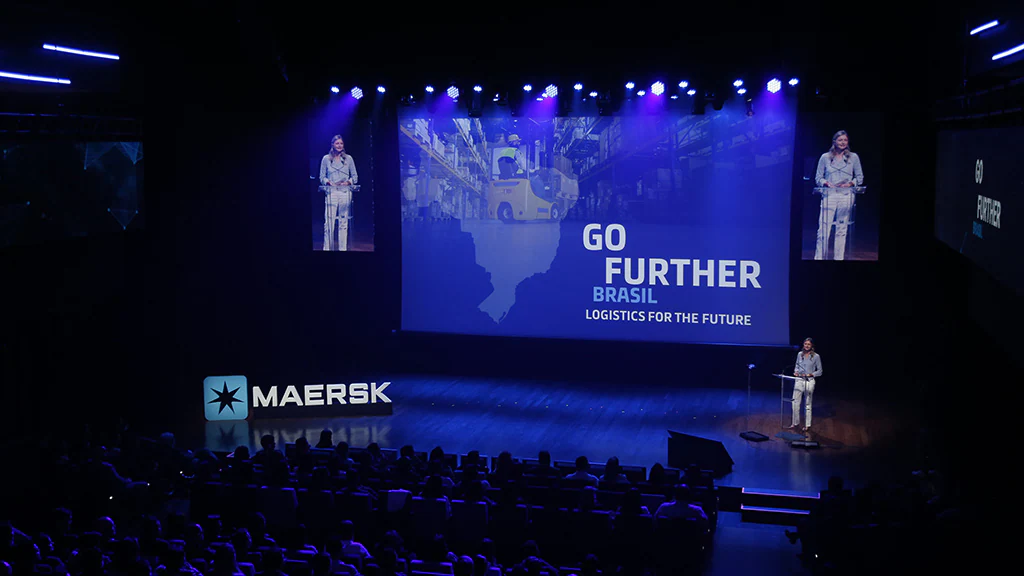A conference by Gustavo Loyola, former president of the Central Bank of Brazil, and more than 20 years in the economic fields and elected as an economist of the year in 2014, dictated the World and Brazil’s economic trends. He highlighted the challenges and opportunities that need to be considered by businesses in the upcoming years.
Loyola concluded with the topic of infrastructure and how the balance of cabotage, train, and waterways apports logistics for Brazil and the region
Logistics for the future was a panel represented by Karin Schoner, Managing Director for Maersk East coast South America; Marcus Voloch, Managing Director of Aliança; Thiago Nascimento, Logistics Director for Decathlon; Rodrigo Medina, Director of Operations and Supply Chain for P&G, and Clovis Wessling Logistics Manager for JBS. In the panel, they discussed the following:

The importance of partnership for end-to-end logistics integration
Visibility and flexibility of the supply chain
Adaptability of the supply chain and nearshoring
The panelists agreed that consumers are increasingly focused on the sustainable part of the brands and are choosing brands adopting more sustainable practices to produce, transport, and distribute their products.
Also, digitalization plays a key role in logistics transformation, and improving visibility on the supply chain is crucial to be agile and resilient.

After the panel, the audience had a quick cocktail, and the theater chairs were hidden; the venue now had sofas and high chairs.
An immersive experience where Maersk showcased the end-to-end capabilities in Brazil with a virtual reality video made everyone put their glasses on and watch how Maersk starts at the factories or farms, passing through the ocean, warehousing, distribution, air cargo, depots, and ends at the stores or even in the table of our customers.

Ricardo Rocha, Regional Head of Logistics and Services in Latin America and the Caribbean for Maersk, closed the immersive experience by showing our integrator journey and how this has taken life in Brazil.
Rocha also agreed with the previous expositors considering sustainability as part of the new normal for Maersk towards a circular and green logistic for Latin America.
Maersk began a transformation journey in Latin America in 2017; it implied several organizational-related actions, expanding our portfolio.
The group has gone from a conglomerate of businesses with different interests into an integrated supplier of end-to-end solutions.

The event ended with many opened eyes and a cocktail as a Brazilian band started to play. Many customers stayed and talked about the logistics for the future, sustainability as part of the new normal, the trends for the Latin America region, and how the transformation for the Brazilian market has begun.
















